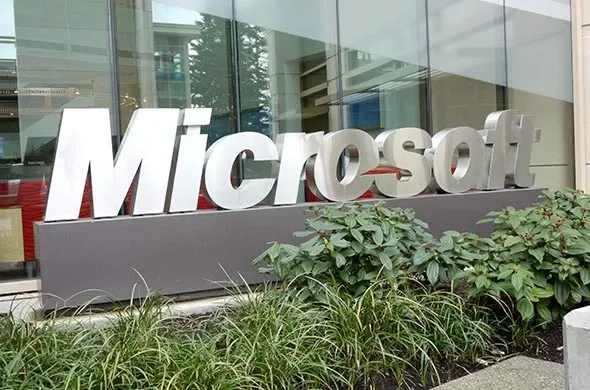Judge Sides with AT&T Against T-Mobile
A US federal judge sided with AT&T by issuing a temporary restraining order against T-Mobile US.

Satya Nadella’s plan to reshape Microsoft as a cloud-computing company hit a snag in the third quarter, when lackluster sales of Surface tablets and weaker demand for corporate software-support services kept revenue growth in check, according to Bloomberg.
Adjusted sales in the period that ended in March rose to $23.56 billion, falling slightly short of analysts’ average estimate. Even as some businesses underperformed, the company posted another quarter of brisk demand for internet-based versions of Office software and its Azure service for running and storing customers’ data and applications.
Azure sales rose 93 percent, while commercial Office 365 increased 45 percent. Microsoft has poured billions into data centers to run these services and is now signing up customers to fill them. Meanwhile, the personal-computer market, a drag on Microsoft results for the past several years, has begun to stabilize.
Profit excluding certain items in the quarter that ended March 31 was 73 cents a share, topping analysts’ 70-cent average estimate, according to data compiled by Bloomberg. Analysts had projected sales of $23.65 billion. Earnings were higher because Microsoft exceeded its own estimates in the more profitable areas of productivity and cloud software. It was Surface hardware, a less lucrative business, where Microsoft did worse than the company had predicted, CFO Amy Hood said.
Third-quarter sales in the company’s More Personal Computing business, which houses Windows software, Surface devices and the Xbox game console, fell 7.4 percent to $8.84 billion. That was below the $9.2 billion average estimate of five analysts polled by Bloomberg, owing to a 26 percent decline in Surface revenue.
The company’s revenue shortfall was only its second since 2013. When Microsoft does miss, it’s often in the fiscal third quarter, a historically slower sales period for the software maker. The last sales disappointment was a year ago in the same period. Other businesses performed better than expected. In the Intelligent Cloud unit sales increased 11 percent to $6.76 billion, compared with the $6.61 billion average analyst projection. Productivity revenue, mainly Office software, climbed 22 percent to $7.96 billion. Analysts had estimated $7.78 billion.
Even Microsoft’s PC-software business looked relatively solid. Market researcher IDC said shipments finally increased, barely, in the first three months of 2017, with unit sales worldwide rising less than 1 percent. Business PC sales performed better than the consumer market, and Microsoft is benefiting as more companies upgrade to Windows 10. In the recent period, Microsoft boosted sales of Windows to PC makers by 5 percent. Gaming revenue for Xbox and PC increased 4 percent. Windows commercial products and cloud services also expanded.